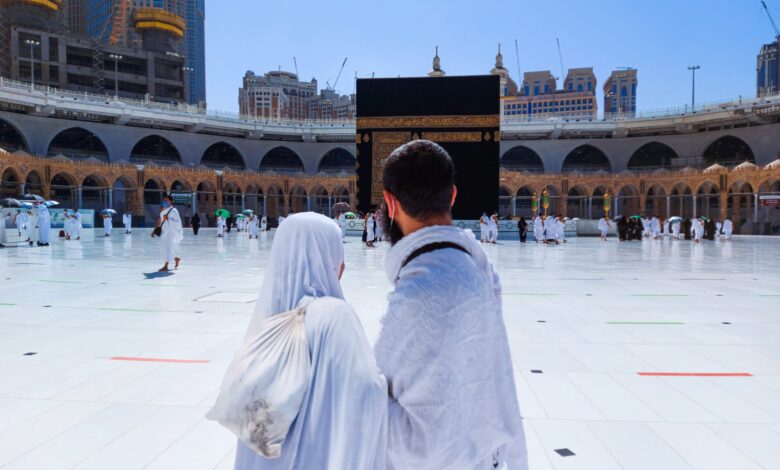What are the Positive Effects of Religious Tourism?

Religious tourism has always been a significant aspect of human history, frequently being associated with spiritual travel or pilgrimages. Travelling to sacred locations, people of many faiths go in search of spiritual enlightenment, intellectual stimulation, and a more profound connection to what they believe. Beyond the personal journey of spiritual development, religious tourism benefits the whole community as a whole as well as the locations. We shall examine the economic, cultural, and social components of religious tourism in this piece as we examine its many beneficial effects. If you want to go to visit the home of Allah then you shouldn’t waste time and look for the Ummrah package now.
Travelling on a Pilgrimage
Travelling on a pilgrimage is a part of the concept of tourism, and religious tourism is a brand-new category of travel. Comparatively speaking to the other major religions, there is little research about Buddhism in English-language literature sources. Nonetheless, it is evident from a survey of Chinese literature sources that Chinese academics are more aware of the growth and resources associated with religious tourism, particularly Buddhism. According to expert studies, religious tourism can have a significant effect on a community.
This chapter covers the connections connecting religions and tourism, as well as the perspectives of stakeholders and the variables influencing those perspectives. A case study that was based on several interviews with pertinent tourist industry players examines the many effects that the growth of Buddhism-related tourism has had on the community that hosts tourists. There are also suggestions made for the better growth of religious tourism.
Happiness can be seen as the ultimate objective for humans and can result from beneficial activities. This has long been accepted; Greek philosophers, such as Epicurus, argued that people are inherently driven to seek happiness and make an effort to live happy lives. Positive psychology, which aims at comprehending how to make individuals happier and assist them in leading more satisfying lives, has made happiness a popular issue since the late 1990s. Seeking life happiness is a persistent life notion, according to constructive psychologist Martin Seligman’s (2004) Authentic Happiness Theory (AHT). Three key components are associated with an individual’s happiness: good feelings, involvement, and significance.
Cross-Cultural Understanding and Exchange:
Religious tourism acts as a bridge to promote understanding and cultural exchange between individuals from different origins. On their travels, pilgrims and guests come to many customs, rites, and lifestyles, which deepen their understanding of cultural variety. This conversation helps dispel prejudices, encourage tolerance, and foster relationships between people from different backgrounds.
Preservation of Heritage Sites:
Old and culturally significant locations that could otherwise be in danger of being neglected or falling into disrepair can be found in numerous faith-based tourism attractions. Pilgrims and visitors provide these locations resources as well as attention, which helps with upkeep and preservation. Local communities frequently take great pleasure in their religious past, which inspires group efforts to preserve historical sites so that future generations can continue to visit them.
Job Creation and Economic Growth:
In many locations, religious tourism plays a major role in driving economic growth. Travelers and pilgrims support the community’s economy by spending money on lodging, transportation, meals, gifts, and other services. This financial influx supports local companies and generates jobs for residents in a variety of sectors, including hospitality, transportation, guide services, and craft industries. Thus, in many areas, religious tourism serves as a stimulus for long-term economic growth.
Infrastructure Development:
Travel destinations frequently make improvements to their infrastructure investments in response to the growing number of religious travelers. Better amenities, lodging, and transportation serve both the immediate requirements of tourists and the community at large. Renovated infrastructure promotes responsible urban growth and planning by improving the general standard of living for the local people near religious tourism destinations.
Identity and Cultural Revitalization:
The revival of cultural customs and practices can be greatly aided by religious tourism. A fresh enthusiasm and sense of pride in maintaining their cultural heritage emerge as pilgrims interact with the cultures, arts, and rituals of the area. Positive interactions like these inspire towns to preserve their distinctive history, giving the local populace a sense of continuation and pride in their heritage.
Final Words
Due to its rich historical background, religious tourism is a potent force for good on many levels. Religious tourism has a wide range of effects, including supporting environmental responsibility, accelerating economic growth, and safeguarding cultural heritage. Travellers and destination communities may continue to gain from the diverse range of perspectives that faith-based tourism offers by acknowledging and fostering these positive consequences, which will help to create a more harmonious and integrated global community.




